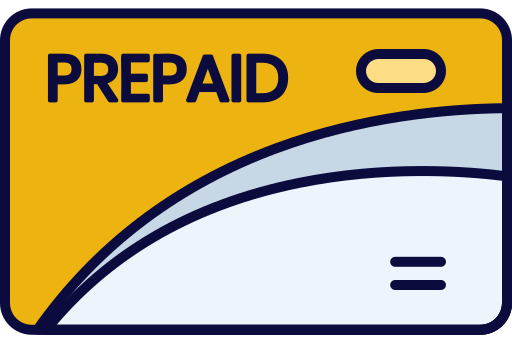Know your energy tariffs!
Consumers can pick and choose from a host of energy tariffs available on the market. However, in order to get the best energy deal, you need to know what kind of tariffs there are and which ones will be the best suited to your own household needs. That’s why we are going to do a quick rundown of different energy tariffs so you can decide for yourself!
Standard Tariffs

Also known as the supplier’s ‘default’ or ‘evergreen’ tariff, the standard tariff is one which has variable prices that fluctuate according to the changes in the market. It is usually the most expensive tariff out there. While you will be given a prior notice, your energy prices will go up or down depending on the supplier. However, while it’s not the cheapest, it is the most flexible option considering you don’t have to pay an exit fee and there is no fixed ending date for the contract. So, if you don’t want to be tied down and have just moved into a new property, this is the option you’ll go for.
Fixed-price Tariffs

The prices of these tariffs do not fluctuate. They usually charge a fixed kilowatt per rate for a particular duration of time (which is usually 12 months). However, if you want to leave the contract before the fixed ending date, you would have to pay an exit fee, unless you do so about 42-49 days earlier than the date the contract ends.
This tariff proves to be beneficial if energy prices rise, because if they do, your supplier won’t be able to charge you extra as the rate is already prefixed. However, if the energy prices fall, then this could be detrimental as you will be paying more than the going rate.
While the rate per unit of gas or electricity is fixed for you, the same does not extend to your direct debit. Your direct debit is linked with your usage. The more you use, the more you will have to pay.
These tariffs are also cheaper than the standard tariffs and usually come with a lot of different energy deals that you would need to compare and choose from.
Dual Fuel Tariffs

With a dual fuel tariff, you can get gas and electricity from the same energy supplier. That means less hassle as you just have to deal with one supplier rather than two. It can also prove to be beneficial as there is usually a discount available for customers who choose to get both electricity and gas from the same company.
In case of any issues regarding billing or usage, you would only have to go through one point of contact, so that also makes matters more convenient. However, one thing to take note of is the fact that a discount from a dual fuel tariff does not always mean that it won’t be cheaper for you to purchase energy from different suppliers. Sometimes, you can get more potential savings if you choose two separate suppliers. It all depends on the type of energy deal you want.
Green Energy Tariffs

Green plans offer 100% renewable electricity with 10% gas that is renewably sourced. Recently, the cost of producing renewable energy has dropped, making green tariffs also some of the cheapest energy options available in the UK market. The amount of energy a supplier will buy and provide to you will depend on your usage.
With green tariffs, suppliers also contribute to environmental schemes on your behalf. If you are concerned about the impact of energy usage on the environment, then green tariffs are a good option.
Prepayment Tariffs

With prepayment tariffs, you can pay for the energy before you use it. This can be done by topping up meters with a token or cards so that your gas and electricity bill is paid in advance. One convenient thing about this is that you can get top-ups through websites. Prices are also capped and suppliers can’t charge you more than a specified rate per unit. Prepayments are a good option if you want to manage your finances, but can be a bit of a burden on the wallet as it is one of the more expensive options on the market.
Online (paperless) energy tariffs

Through online energy tariffs, you can manage your energy bills entirely from the internet. You will get paperless bills and they will be sent as email attachments instead of post. You will also be sending meter readings online. This is an efficient and technologically advanced option and you can even bag yourself a discount. However, if you are more accustomed to getting bills through the post, this may not be for you.
Economy 7 energy tariff

This type of metre charges you two different rates depending on when you use your energy. You’ll usually be charged less at night as compared to the day. This can be confirmed from your bill which will show different electricity rates which are time-dependent.
This type of tariff is only beneficial if you have a lot of electricity and gas usage at night time, because you can take advantage of cheaper off-peak rates. If most of your usage is during the day, this metre is unlikely to be for you.
Capped energy tariffs

These are the tariffs that promise the price will never go up from a specified rate but can go down depending on the market. However, these aren’t the cheapest options available on the market.
Now that you have an idea of the different tariffs and their characteristics, you are in a better position to decide which deal would be ideal for your household. To make it easier for you to compare hundreds of deals and get your hands on the cheapest energy supplier, you can easily book a consultation with our experts at Bill Switchers UK who will do all the work for you!
What does it mean to be on a prepayment plan?
When you are on a prepayment meter, you have to pay for your electricity and gas before you use it. It’s usually done through key cards or tokens that get topped up like mobile phone credit. Usually, prepayment plans are for those who don’t have a very good history of paying their bills, are living in rentals or have accumulated high levels of debt. Prepayment meters are also not the cheapest option for energy available on the market.
How to save your bills on prepayment energy?
However, there is still a way to cut costs on a prepayment meter. Some suppliers offer cheaper deals to those who have a prepayment meter. Switching to a cheaper tariff with a smart or traditional meter can also help you save money. We help you do just that by running a quick comparison and find out which supplier can help you save the most money if you are on a prepayment plan.

